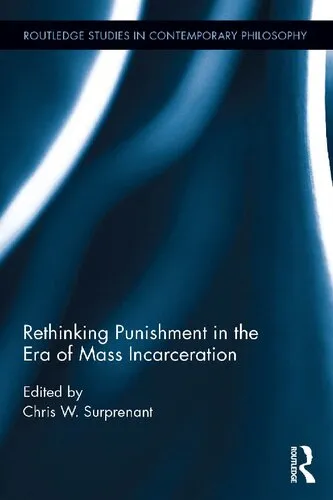Punishment, Communication, and Community (Studies in Crime and Public Policy)
4.1
بر اساس نظر کاربران

شما میتونید سوالاتتون در باره کتاب رو از هوش مصنوعیش بعد از ورود بپرسید
هر دانلود یا پرسش از هوش مصنوعی 2 امتیاز لازم دارد، برای بدست آوردن امتیاز رایگان، به صفحه ی راهنمای امتیازات سر بزنید و یک سری کار ارزشمند انجام بدینکتاب های مرتبط:
معرفی کتاب "Punishment, Communication, and Community"
کتاب "Punishment, Communication, and Community" نوشته ر. ای. داف، یک منبع اساسی در مطالعات جنایی و سیاست عمومی است. این کتاب به بررسی نقش مجازات در جامعه، به ویژه در قالب ارتباط و مفاهیم جامعه پرداخته است.
خلاصهای جامع از کتاب
در این کتاب، داف تلاش میکند تا از مجازات به عنوان یک ابزار ارتباطی که پیامهای اخلاقی و اجتماعی را منتقل میکند، دفاع کند. او به فلسفه مجازات میپردازد و بر این باور است که مجازات باید از دیدگاه اخلاقی قابل توجیه باشد. داف بیان میکند که مجازات یک شکل از دیالوگ اجتماعی است که بین جامعه و مجرم رخ میدهد و هدف آن در نهایت بازسازی روابط اجتماعی است.
این کتاب بر این تمرکز دارد که مجازات نباید تنها به عنوان ابزاری برای کنترل جرم در نظر گرفته شود، بلکه باید بر اساس آنکه چگونه میتواند به بهبود و تقویت جامعه کمک کند، ارزیابی شود. داف همچنین به نحوهی تاثیرگذاری مجازات بر جامعه و تاثیرات آن بر بازآفرینی اجتماعی مجرمین میپردازد.
نکات کلیدی کتاب
- مجازات به عنوان یک دیالوگ اخلاقی بین جامعه و مجرم.
- اهمیت ارتباطات در فرآیند مجازات و بازخورد جامعه.
- بازسازی و ترمیم روابط اجتماعی به عنوان هدف نهایی مجازات.
- نقش جامعه در پذیرش و بازسازی مجرمین پس از مجازات.
جملات مشهور از کتاب
"مجازات وقتی معنا پیدا میکند که به عنوان یک فرآیند اجتماعی و ارتباطی دیده شود، نه فقط یک واکنش صرف به جرم."
"اجتماع نه فقط باید مجازات را به عنوان یک ابزار بپذیرد، بلکه باید به عنوان یک شریک فعال در فرآیند بازسازی اجتماعی و اخلاقی عمل کند."
چرا این کتاب مهم است
این کتاب برای همه کسانی که به دنبال فهم عمیقتری از نقش مجازات در جامعه هستند، یک منبع ارزشمند است. داف به ما نشان میدهد که مجازات فقط ابزاری برای ایجاد ترس و قانونپذیری نیست، بلکه میتواند به عنوان یک فرصت برای یادگیری و بازسازی اجتماعی استفاده شود. این کتاب نظریههای کلاسیک را به چالش کشیده و نگرشی تازه به مطالعه سیاستهای جنایی و عمومی اضافه میکند.
همچنین، توجه داف به مفهوم جامعه و اهمیت ارتباطات انسانی در فرآیند مجازات، این کتاب را به یک منبع ضروری برای محققان، دانشجویان و سیاستگذاران تبدیل کرده است. نظرات نوآورانه او درباره ارتباط بین مجازات و اجتماع میتواند راهنمایی برای ایجاد تغییرات مثبت در سیستمهای کیفری مدرن باشد.
Welcome to a detailed exploration of Punishment, Communication, and Community, a seminal work by R.A. Duff that delves deep into the philosophical and practical dimensions of punishment within the context of society and crime policy. This book serves as an insightful guide to understanding how punishment intersects with communication and community, offering a nuanced perspective that challenges traditional penal theories.
Detailed Summary of the Book
In Punishment, Communication, and Community, Duff expertly navigates through the moral and ethical frameworks that underpin the practice of punishment. R.A. Duff argues that punishment should not solely be understood as a mechanism for retribution or deterrence but as a communicative process that involves more profound communicative and community elements. The book lays out a theory of punishment that is not only about inflicting suffering on offenders but also about communicating censure and encouraging acknowledgment and reform.
Duff emphasizes the role of the community in the penal process, proposing that the community serves as a crucial intermediary in conveying the meaning and purpose of punishment. The notion of punishment as a communicative process allows for dialogue between the offender, the victim, and the larger community, aiming for a resolution that enhances the social fabric rather than simply isolating the offender. Throughout the book, Duff critiques the retributive and utilitarian models of punishment, offering an alternative that prioritizes moral communication and restoration over mere retribution or deterrence.
Key Takeaways
- **Communicative Punishment**: Duff introduces a novel idea of punishment as communication. Instead of focusing on retribution, the book highlights the expressive function of punishment as a way to convey societal censure.
- **Role of the Community**: Understanding the community’s role in punishment is crucial. Duff argues that the community plays a vital role in both delivering and understanding punishment, fostering social cohesion.
- **Restorative Justice**: Emphasis on the need for restoration and reconciliation rather than isolation and suffering. Duff's theory supports a justice system that seeks to restore relationships and encourage offender reintegration.
Famous Quotes from the Book
"Punishment is not merely a response to crime, but a societal expression of disapproval aimed at the individual, with the intent of moral dialogue and reform."
"The community is not just a silent observer but plays an integral role in crafting the meanings and outcomes of punishment."
Why This Book Matters
This book is pivotal for students, scholars, and practitioners engaged in criminal justice, philosophy, and public policy. R.A. Duff offers a fresh theoretical landscape where punishment aligns more closely with ethical and community-centered values, making justice not just a concept of law but of collective moral endeavor. In times where punitive systems are often critiqued for their efficacy and morality, Punishment, Communication, and Community provides a compelling alternative framework that is not only intellectually robust but also practical in approach.
By reframing how we perceive punishment, Duff's work challenges entrenched paradigms and encourages a transition towards a justice system that values dialogue, community engagement, and moral reintegration. This perspective is vital in contemporary discussions about criminal justice reform and aligns with broader societal movements towards restorative and therapeutic justice practices that seek not only to punish but also to heal and rehabilitate.
دانلود رایگان مستقیم
شما میتونید سوالاتتون در باره کتاب رو از هوش مصنوعیش بعد از ورود بپرسید
دسترسی به کتابها از طریق پلتفرمهای قانونی و کتابخانههای عمومی نه تنها از حقوق نویسندگان و ناشران حمایت میکند، بلکه به پایداری فرهنگ کتابخوانی نیز کمک میرساند. پیش از دانلود، لحظهای به بررسی این گزینهها فکر کنید.
این کتاب رو در پلتفرم های دیگه ببینید
WorldCat به شما کمک میکنه تا کتاب ها رو در کتابخانه های سراسر دنیا پیدا کنید
امتیازها، نظرات تخصصی و صحبت ها درباره کتاب را در Goodreads ببینید
کتابهای کمیاب یا دست دوم را در AbeBooks پیدا کنید و بخرید
1493
بازدید4.1
امتیاز0
نظر98%
رضایتنظرات:
4.1
بر اساس 0 نظر کاربران
Questions & Answers
Ask questions about this book or help others by answering
No questions yet. Be the first to ask!
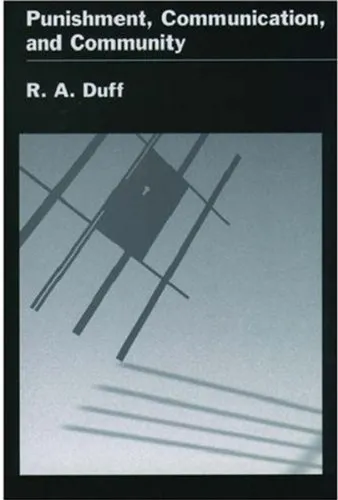

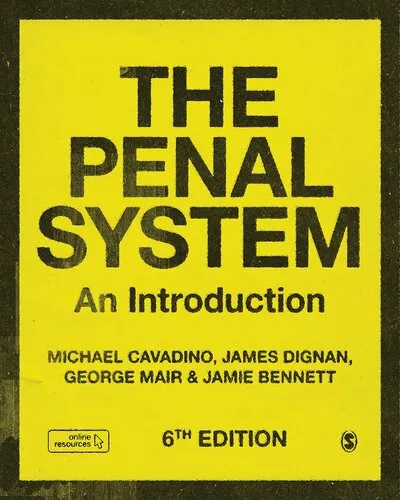
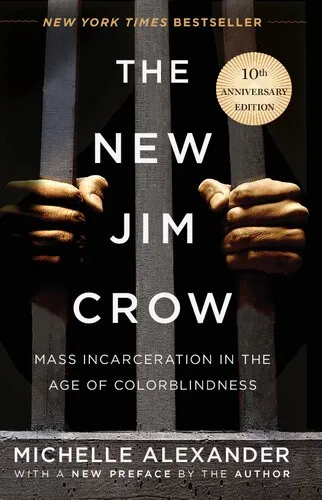
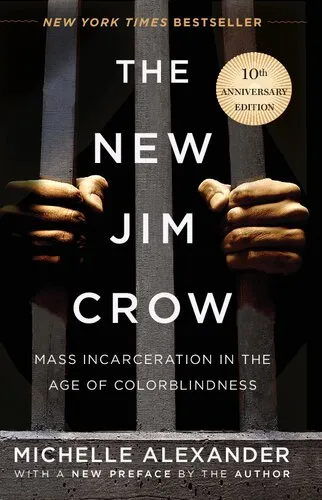
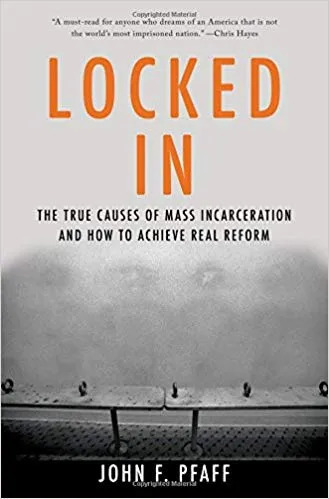
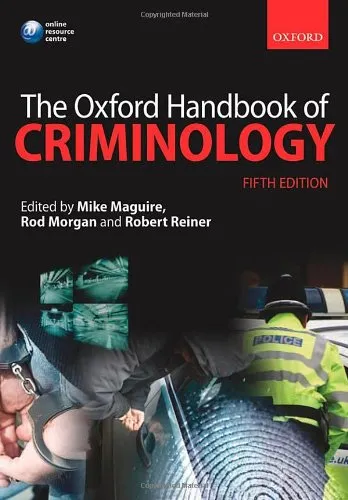
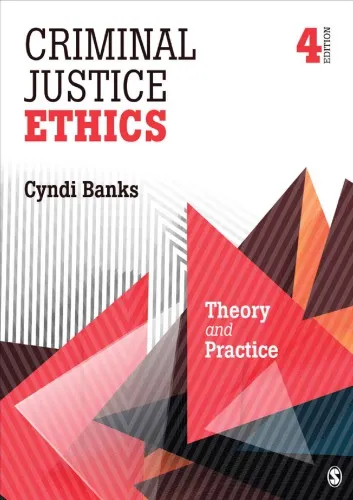
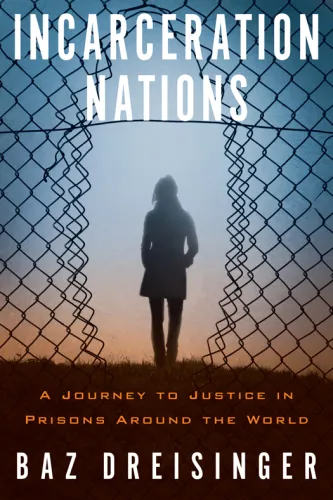
![Crime and Punishment in America: An Encyclopedia of Trends and Controversies in the Justice System [2 Volumes]](https://s3.refhub.ir/images/thumb/Crime_and_Punishment_in_America__An_Encyclope_24420.webp)
